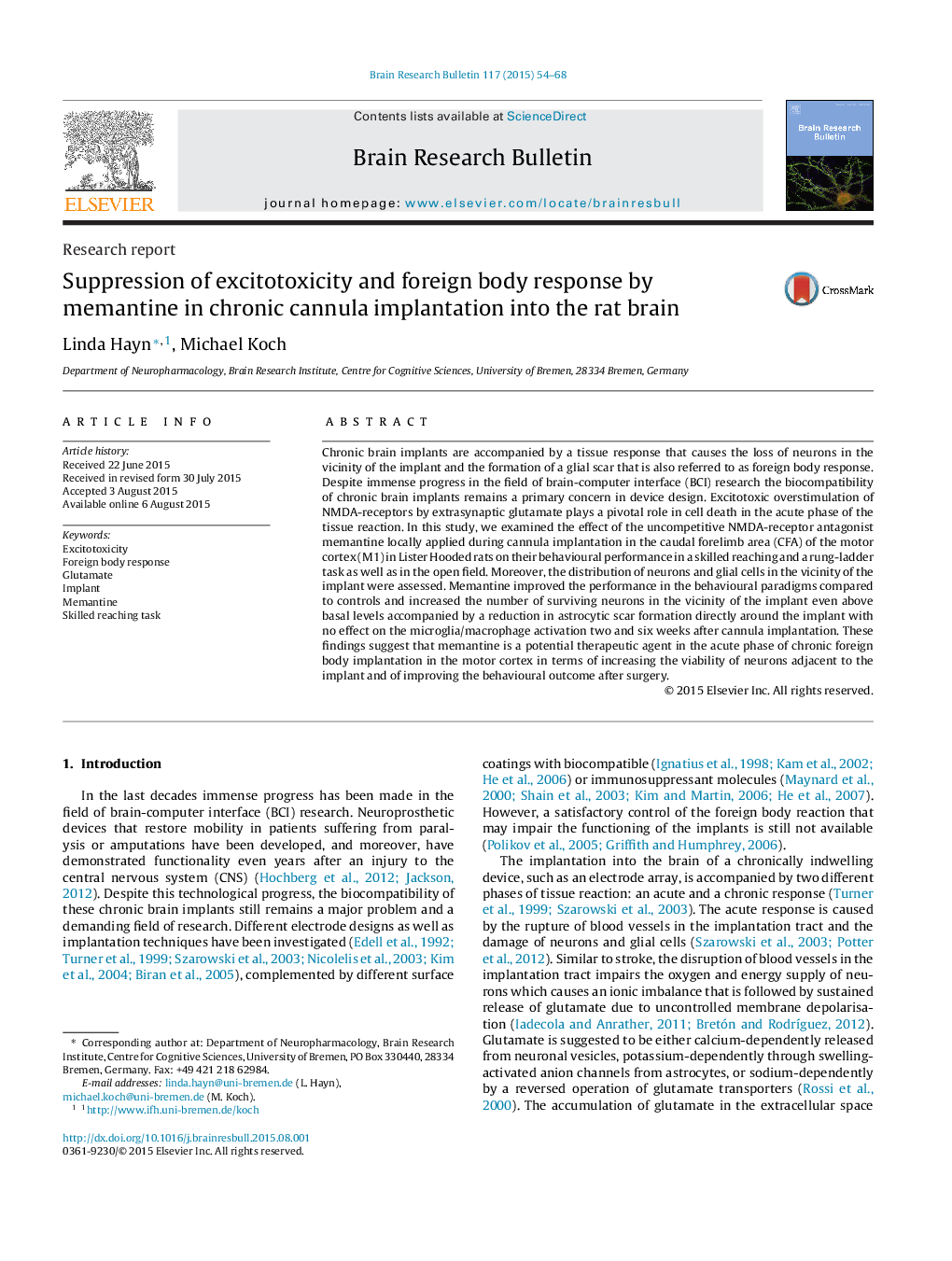| کد مقاله | کد نشریه | سال انتشار | مقاله انگلیسی | نسخه تمام متن |
|---|---|---|---|---|
| 4318677 | 1613238 | 2015 | 15 صفحه PDF | دانلود رایگان |
• Brain implants cause a foreign body response that is accompanied by excitotoxicity.
• Memantine improves behavioural performance after cannula implantation in the CFA.
• Memantine increases the number of surviving neurons in the vicinity of an implant.
• Astrocytic scar tissue directly around the implant is reduced by memantine.
Chronic brain implants are accompanied by a tissue response that causes the loss of neurons in the vicinity of the implant and the formation of a glial scar that is also referred to as foreign body response. Despite immense progress in the field of brain-computer interface (BCI) research the biocompatibility of chronic brain implants remains a primary concern in device design. Excitotoxic overstimulation of NMDA-receptors by extrasynaptic glutamate plays a pivotal role in cell death in the acute phase of the tissue reaction. In this study, we examined the effect of the uncompetitive NMDA-receptor antagonist memantine locally applied during cannula implantation in the caudal forelimb area (CFA) of the motor cortex (M1) in Lister Hooded rats on their behavioural performance in a skilled reaching and a rung-ladder task as well as in the open field. Moreover, the distribution of neurons and glial cells in the vicinity of the implant were assessed. Memantine improved the performance in the behavioural paradigms compared to controls and increased the number of surviving neurons in the vicinity of the implant even above basal levels accompanied by a reduction in astrocytic scar formation directly around the implant with no effect on the microglia/macrophage activation two and six weeks after cannula implantation. These findings suggest that memantine is a potential therapeutic agent in the acute phase of chronic foreign body implantation in the motor cortex in terms of increasing the viability of neurons adjacent to the implant and of improving the behavioural outcome after surgery.
Journal: Brain Research Bulletin - Volume 117, August 2015, Pages 54–68
